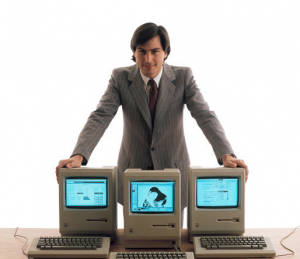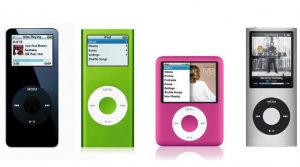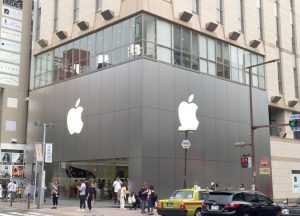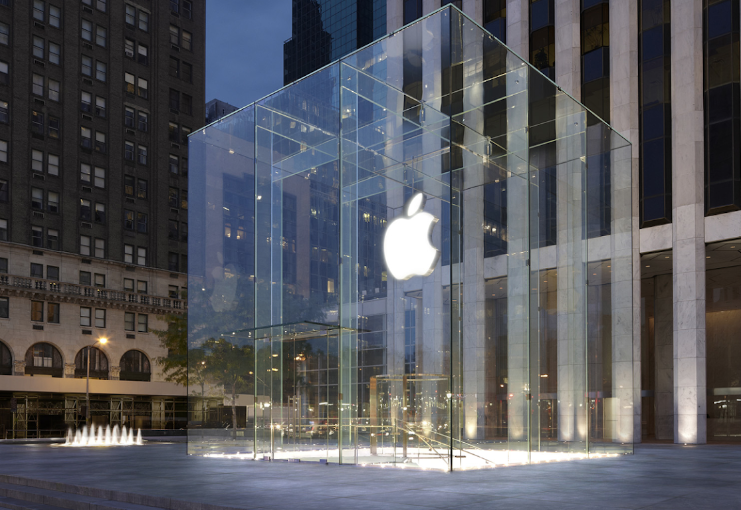( Japanese Version is HERE )
An enterprise is broadly defined as “a collection of people and resources created with the primary function of providing products and services and placed under a single management organization. However, the activities of this enterprise do not just unfold in a haphazard manner. At the base of all corporate activities is the management philosophy, or the philosophy that expresses what the company wants to be. Strategies are formulated as specific measures to achieve this management philosophy. However, if the products and services offered by a company based on such a strategy are not supported by the market and sold to consumers, the strategy will not be realized and, consequently, the corporate philosophy will not be achieved. Therefore, it is essential to conduct research on how the products and services offered by the company will sell. Market research for this purpose is an essential part of a company’s activities.
For example, Apple Inc. is a super giant that is one of the leading ‘GAFA’ companies in the modern IT world, and according to the study, “Apple has become the most profitable company in history: in the fourth quarter of 2016, Apple’s total operating profit since inception was twice Amazon’s operating profit twice as much as Amazon’s. Apple’s cash reserves are almost equal to Denmark’s GDP.
Apple does not seem to have a written business philosophy, but there is enough information to get a glimpse of the kind of company Apple wants to be. Steve Jobs, one of Apple’s founders and a strong charismatic leader, has spoken on various occasions about the company’s management philosophy.

For example, in an interview at the launch of the company’s groundbreaking Macintosh series of personal computers, he described the concept of personal computers as “Wheels for the Mind,” saying, “That’s why I like to think of a personal computer as an intellectual bicycle. I like to think of personal computers as bicycles. That’s why I like to think of a personal computer as a bicycle, because it is a tool that expands a part of our innate mental capacity, our intellect. He also says, “I think it’s a great way to expand our innate mental capacity, our intellect.

Under the leadership of this charismatic leader, Apple continued to introduce a succession of innovative new products after its unique and revolutionary Mac computer, including the i-Pod, the i-Tune, and the i-Phone (and i-Pad), which remains the company’s largest source of revenue to this day. The company has continued to introduce new products.

When we look at these Apple products and consider their common threads, we can see that they are all based on the philosophy of “developing tools to expand part of the human intellect,” as Steve Jobs said about the Macintosh. These products were indeed “tools for expanding human intelligence,” and were strongly supported by consumers.
Apple Inc. started out under the name “Apple Computer,” but later dropped the “Computer” and changed its name to “Apple” Inc. This could be seen as the company ceasing to limit its corporate domain to Computer and changing to a broader corporate domain, but it could also be seen as the company adapting its name to a corporate domain more in line with its original business philosophy.

Steve Jobs’ mission is to “create tools that expand part of our intellect. This mission has been realized as a vision through the company’s series of innovative products. As a result, innovative products that did not exist before have satisfied customers, created significant customer value, and brought the company enormous business value unprecedented in its history.
As an executive, however, Jobs had another obsession. He wanted his products to be more than just everyday commodities; he wanted them to have brand value in every detail of their design, feel, and appearance. The company wanted its products to have a brand value that would give buyers a sense of pride and status. To achieve this goal, they hired excellent designers, and their product launches became show-like events that attracted the attention of the mass media. They also set up Apple Stores in major upscale shopping areas around the world to give special brand value to the products sold there that carried the Apple logo.

The store’s interior is upscale, spacious, and tasteful, but there are no other companies’ products in the store. Customers do not come to this store to compare Apple products with other companies’ technology products. They come to the store to purchase Apple products after receiving attentive service and explanations from sophisticated staff. Apple’s successful market strategy has enabled the company to establish a highly profitable business by avoiding the price wars that have made its brand image a commodity, like the products of other IT technology companies.
In other words, in corporate activities, a business will not succeed unless it first not only has a clear management philosophy, but also a strategy for how to market the products developed and manufactured under that philosophy and how to ensure that they generate profits. Then, the market strategy, i.e., what kind of market the product targets, how the product is likely to be accepted, what kind of buyers to target, how the market will change, how to expand new needs, and so on, is important and indispensable. In other words, marketing is important and essential.
In marketing, there are four aspects of differentiation: price, product, service, and brand. In terms of price, the company’s strategy was to avoid the trap of price competition and chose to differentiate itself by going upscale. In terms of products, the company has a highly innovative concept and a unified image of sophistication. In terms of service, the company has 492 directly managed specialty stores in 19 major countries around the world, as if going against the streamlining trend of the Internet, and it has also established an extremely generous support system called Apple Care. (In addition, they have a very generous support system called Apple Care (I have personally requested support from Apple Care many times, and I am often impressed by their generosity. In most cases, I was able to share my screen with a support person over the Internet and receive advice directly from him or her, but I once spent almost half a day with a support person to solve a minor problem. In general, support from IT-related companies is often perfunctory and perfunctory, and some of the worst ones only accept inquiries by e-mail. I was even impressed by Apple-Care’s knowledgeable and courteous support staff. (From a cynical point of view, this service may be possible only for a company with that much money to spare…)
In terms of brand differentiation, Apple has not only developed innovative products with a clear philosophy, but has also succeeded in establishing a brand image for its products. And despite the charismatic leader’s untimely death, his brand image was further enhanced by the fact that he was idolized as an unheralded genius manager.
As a result of these marketing strategies, “Apple has succeeded in what the business world thought was impossible: selling low-cost products at premium prices. Apple became the most profitable company in history.
In other words, Apple established a highly profitable business by developing products in line with its business philosophy, successfully giving its products a brand value that sets them apart from the technological products of other companies in the industry, and developing a sales strategy based on clever marketing.
In terms of market share of the global smartphone market, Apple Inc. had only a 14.5% share in 2016 in terms of annual volume. In terms of profit share, however, it accounted for a whopping 79%. In other words, the company’s branded and differentiated iPhone as its main product maintains a much higher profit margin than many other everyday commodity smartphones, and it has the lion’s share of the global smartphone industry’s profits.
In this way, Apple Inc. became one of the four super giants of the IT sector, which are referred to as “GAFA”.
